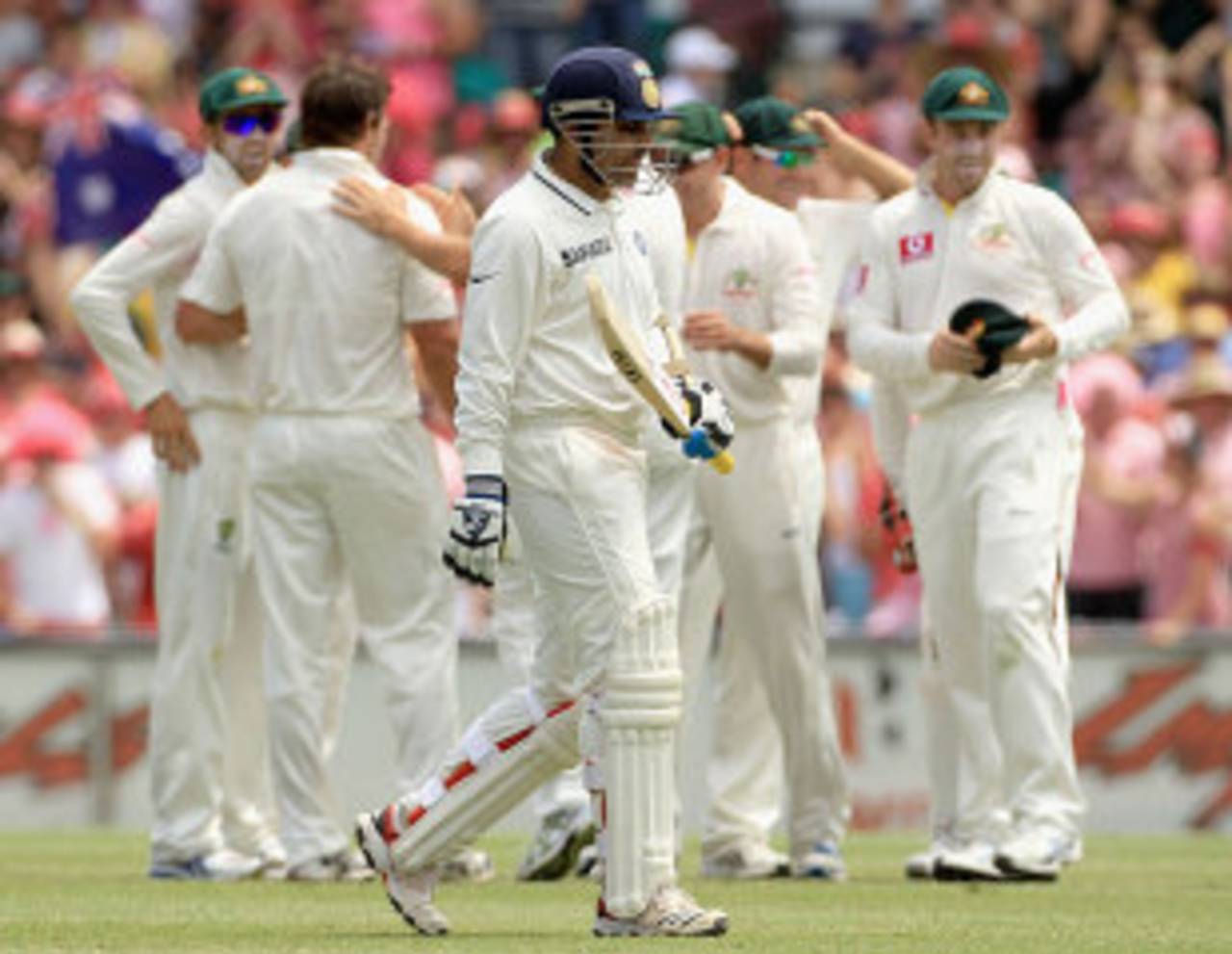A few days ago an old friend of mine in Australia wrote an article that said Virender Sehwag was causing a rift in the Indian team. I read it and saw neither proof nor any suggestion of proof, and it got me thinking. Did the writer hear it himself? Did he have access to people who would tell him the truth about it? Did it strike him as an interesting thought while in the shower? Did someone whisper it to him?
And I wondered what would happen if Sehwag sued him and the newspaper. Could they hide behind the old "we can't reveal our sources" line that is sometimes essential but at most times a flimsy excuse? And what if Sehwag then used the same "won't reveal sources" line and called the writer a deranged lunatic and the newspaper a source of terrorist funding? Where does it end, and more relevant to us, where is it taking reporting of sport?
Predictably the Indian media took it up amidst desperate attempts to find sinister meaning in a go-karting excursion. And on Twitter many people asked me "to give it back to them", thus raising the possibility of a second contest on tour. But surely the media's job is to report the only contest there should be: on the field of play between two sets of players. Or do we fall into the trap of believing that we are part of the plan to dismantle the opposition? Do some of us run the risk of thinking we take a wicket or two as well?
In 2007-08, soon after the extremely
ugly events of Sydney I asked one of the reporters from the
Australian, a newspaper that had routinely cast an acerbic, contemptuous look at Indian cricket, out to dinner. To be honest, I was keen to know what kind of person he was, and I almost expected to meet someone full of hatred. Instead, I made a friend. I found him very sensitive to different cultures, with a love for travel and history, but also to be someone who talked about the compulsions of having to project a certain stance for the public.
I disagreed, because I refused to believe that cricket followers who pay good money to follow sport are driven by this jingoistic nonsense; certainly I did not meet a single Australian in 2008 whose views echoed that of the newspaper. I found instead that the people of Australia, inevitably great sports lovers and admirers of a good contest, did not believe that the behaviour of their cricket team and the stance of the media were representative of them as a country. You only have to see the extremely warm reception India's cricketers have got from crowds in Melbourne and Sydney this time around as proof.
I hear similar arguments from reporters of news channels - about the need to sensationalise, even to be vitriolic, because that is what the public wants. Every statement is an affront, a challenge, almost as if it is inspired by a politician addressing a rally. I was once at the other end of a telephone line, awaiting my turn on air in a phone-in, and I thought I was hearing a script that Salim-Javed might have written for Amitabh Bachchan in Deewaar.
Now I could be completely wrong, and I could be rightly accused of not knowing how the rating wars work, but what I do know is that the people in the media I looked up to and still do, the most widely respected, don't feel the need to take sides, or to deliver speeches on air, or to take wickets in their columns. They don't go to war every day. They describe, they inform, they paint a picture, and they put things in perspective, and the much maligned "public" seems to like them doing that.
And so I wonder as I look ahead to a cricket match, not a media tussle, in Perth. Are we leaving the right legacy? Have we been custodians of the game as we expect others to be? Do we do in our profession what we lambast others for doing in theirs? And have we got this whole business of sport wrong? Do we, in spite of the posturing at press conferences, read too much into what is essentially a contest on a field of play between two teams?
